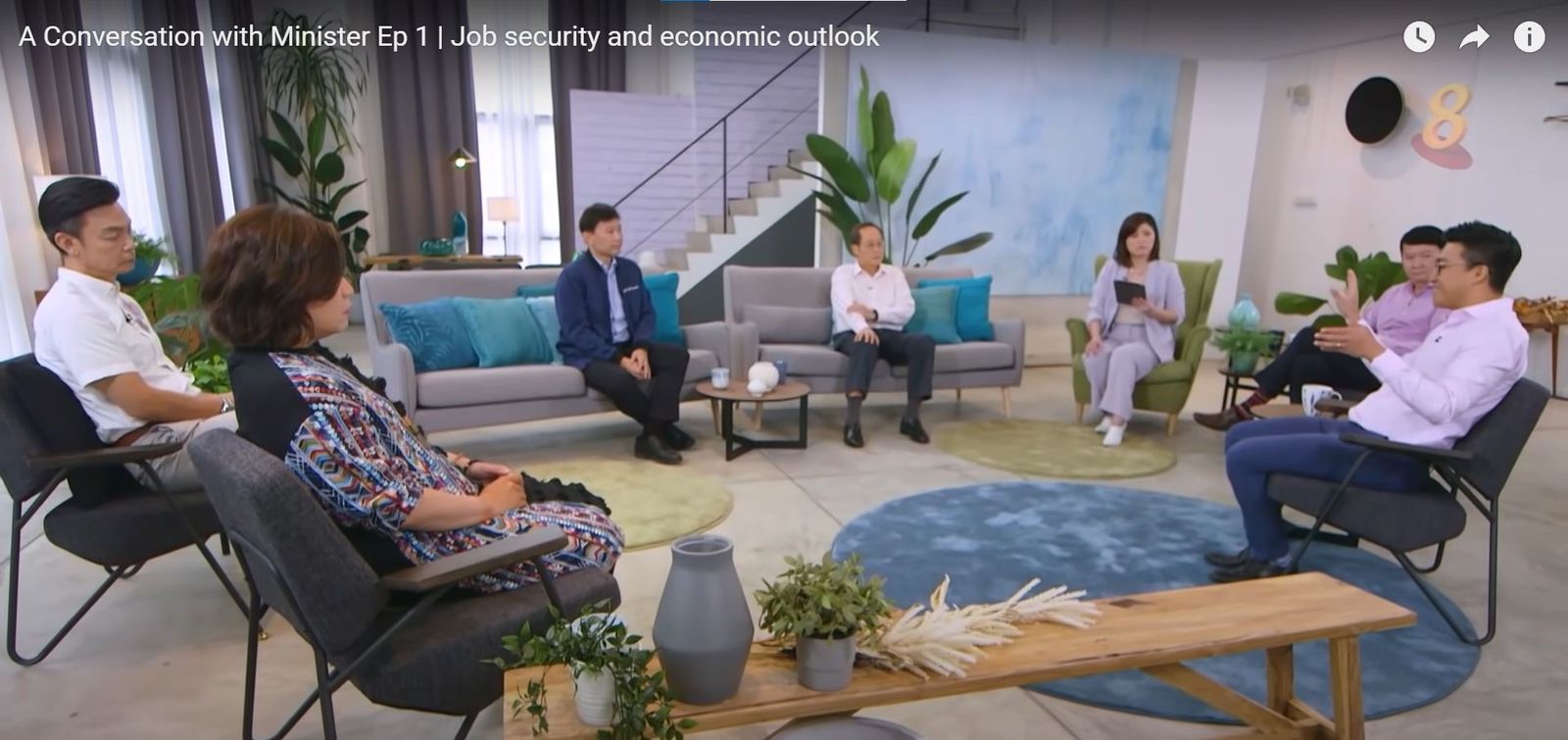Even before the Covid-19 pandemic, Mr Jay Ng, 38, was already volunteering to help lower-income families, migrant workers and other marginalised groups in Singapore.
But when he saw his lower-wage friends losing their jobs and struggling to put food on the table during the crisis, he went a step further: He quit his job at the fintech firm he co-founded in 2018.
Why give up a six-figure job? To serve the needy by setting up a social enterprise organisation called WeShine.
Launched last November, WeShine aims to equip disadvantaged people, including lower-wage workers, with new skills and match them with higher-paying and more stable jobs.
Last month, Mr Ng led a project under the Alliance for Action for Lower-Wage Workers (AfA for LWW) to pilot a new initiative, Makan&Shine, where volunteers learn about the lives and needs of workers and offer advice and casual conversation over free meals.
The volunteers come from all walks of life, ranging from working professionals to those with expertise in career development or recruitment. The workers who attend these meet-ups over meals typically need help with training and employment. They are recommended to Mr Ng's group by family service centres, social enterprises and other activists.
"We train our hosts to handle different situations. For example how to respond appropriately if a friend asks for money," says Mr Ng.
"We also match hosts with friends (a term used to refer to the workers they meet) in meaningful ways, including by pairing those who work in the same industry, such as food and beverage.
"We want hosts to journey with their friends and help them overcome complex and structural issues in their lives."
The volunteers, who range from 30 to 60 years old, have hosted about 10 meals in person and virtually so far, with up to five friends attending these get-togethers at a time.
They have so far paired about 20 people with better jobs, including a woman with a young daughter who moved from shift work in the food and beverage industry to a more stable, higher-paying job with fixed hours.
"We're also collaborating with Sales Excellence Institute, a training institute, to design bite-size lessons on topics such as inner transformation and motivation, which we can conduct in 20 to 25 minutes during the meet-ups," he says.
Mr Ng credits the new AfA for LWW for giving WeShine a crucial boost.
The AfA, launched in March, aims to mobilise Singaporeans in a whole-of-society effort to uplift lower-wage workers. Its 50 members include youth and representatives from unions, businesses and community groups.
They are working on projects that focus on four areas: Strengthening respect and appreciation for lower-wage workers among the public; encouraging supportive working environments; increasing support for and benefits from upskilling; and driving support for progressive wages.
Tripartite partners have been engaged with the project teams throughout to help them test out their ideas on the ground and create a sustained impact on the lives of LWWs beyond the AfA.
Mr Ng says that he was invited to join the AfA after he shared his passion for uplifting LWWs in Singapore with MOM in November last year. Mr Ng formed a team of 11 members under the AfA to develop and test the Makan&Shine initiative.
"The AfA puts us in touch with like-minded employers such as Seoul Garden and Mothercare, which makes the job matching easier as we are able to learn more about their requirements and recommend suitable people," he says.
The AfA team is refining the Makan&Shine programme and plans to scale it up. Changes on the table include requiring hosts to commit to multiple meals with the same beneficiaries to strengthen relationships and ensure continual help.
"We are also developing frameworks and materials that the hosts can use in giving advice, for example, about different schemes and initiatives like SkillsFuture," he says. "It will also be useful to have something that we can give to our friends to refer to on their own."
Mr Ng will also leverage technology to help lower-wage workers seek better jobs and suitable training programmes. "We intend to have a platform where hosts can input data about our friends, with their consent and in full compliance with data privacy regulations, to better recommend suitable skills training and available jobs.
"If you are a cleaner who wants to have a specific job, our hosts can use the platform to see what courses you can attend to get the skills you need, and your job opportunities.
"We hope that our work will be the foundation for a community-driven approach, empowered by technology to help lower-wage workers, and that our small pilot programmes become a much larger movement."





